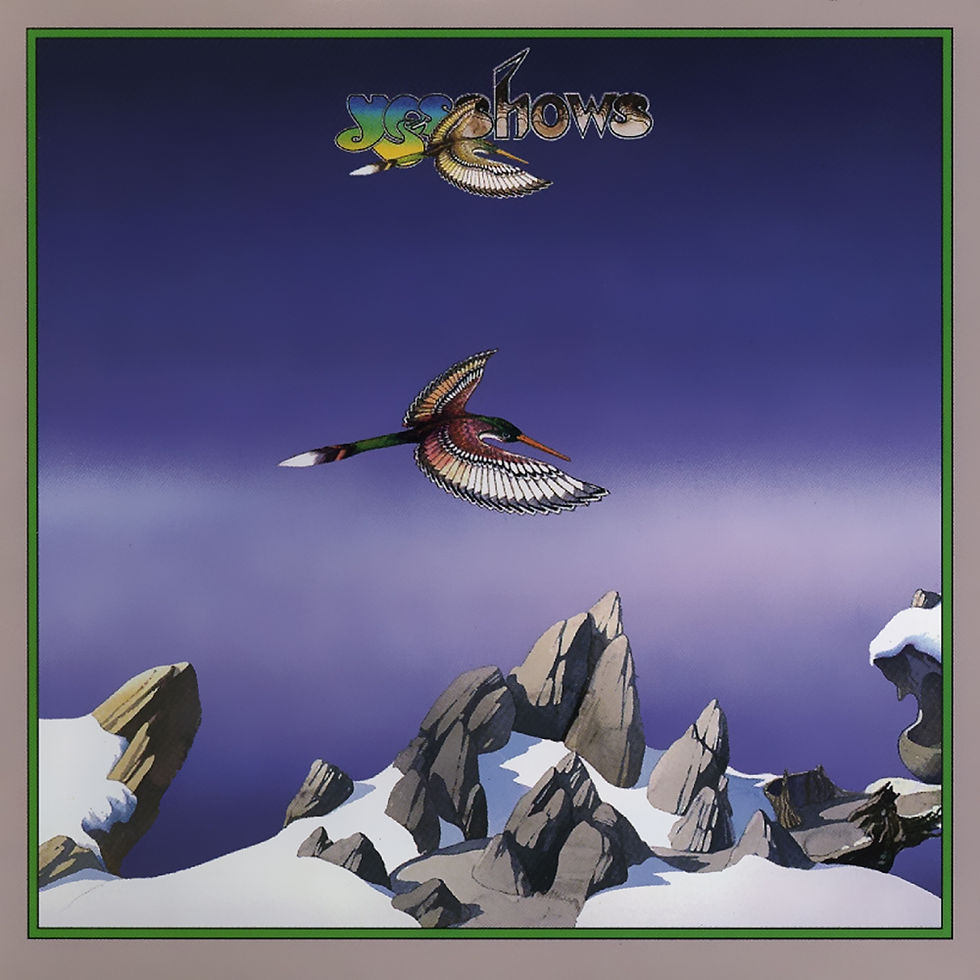Yes - Yesshows
- FaceOff - עימות חזיתי

- Nov 24, 2025
- 2 min read
On November 24, 1980, "Yes" released their second live album “Yesshows”.

It is a sweeping document of the band’s late-70s concerts. The recordings of "Yesshows" captured between 1976 and 1978 preserved a version of "Yes" that was no longer active. By the time it appeared, Jon Anderson and Rick Wakeman had already left the band, Trevor Horn and Geoff Downes of "The Buggles" were recruited as replacements on vocals and keyboards, respectively and the new lineup reheleased "Drama".
Unlike “Yessongs”, which documented a single moment in time, “Yesshows” is a mosaic. Chris Squire assembled the material himself, selecting performances from two distinct lineups and three eras. The earliest recordings come from the 1976 “Relayer” tour, featuring Patrick Moraz on keyboards. The later tracks were recorded after Rick Wakeman’s return in 1977, carrying the more melodic direction of “Going for the One” and “Tormato”. Because of this, the album reflects two very different visions of "Yes". One dense, experimental, and rhythmic, the other more lyrical and bright, yet both unmistakably virtuosic.
The album draws from five different concerts.
The Moraz-era epics “The Gates of Delirium” and “Ritual (Nous Sommes du Soleil)” were taken from the 17 August 1976 show at "Cobo Arena" in Detroit during the “Relayer” tour. These recordings are delivered with fierce improvisational energy. Moraz’s fusion-leaning style intensifies the rhythmic sections, giving these versions a raw, unpredictable quality.
The Wakeman-era recordings “Parallels”, “Going for the One”, and “Wonderous Stories” come from the 24 November 1977 concert at "Ahoy-Hal" in Rotterdam on the “Going for the One” tour. The later tracks “Time and a Word” and “Don’t Kill the Whale” originate from the Wembley Arena concerts on the “Tormato” tour. These recordings offers a different sound that highlight the band’s shift back toward melodic structure without losing their technical edge.
The other band members musicianship is implacable. Chris Squire shows his brilliant and unique playing, especially in the “Ritual Pt. 2" bass solo. Jon Anderson rises above the storm with clarity and emotional force. Steve Howe navigates effortlessly between graceful acoustic playing and sharp electric lines, and Alan White anchors all eras represented with inventive, confident drumming.
Critical reception at the time was mixed. Because the tracks originate from different tours, venues, and mixing sessions, the album carries a patchwork character less cohesive than “Yessongs”. Yet, the album offers a broader, more revealing perspective on the band’s late-70s identity. It captures "Yes" during a transformative period still ambitious, still virtuosic exploring different identities across tours.
For Listening: Spotify, Apple Music













Comments